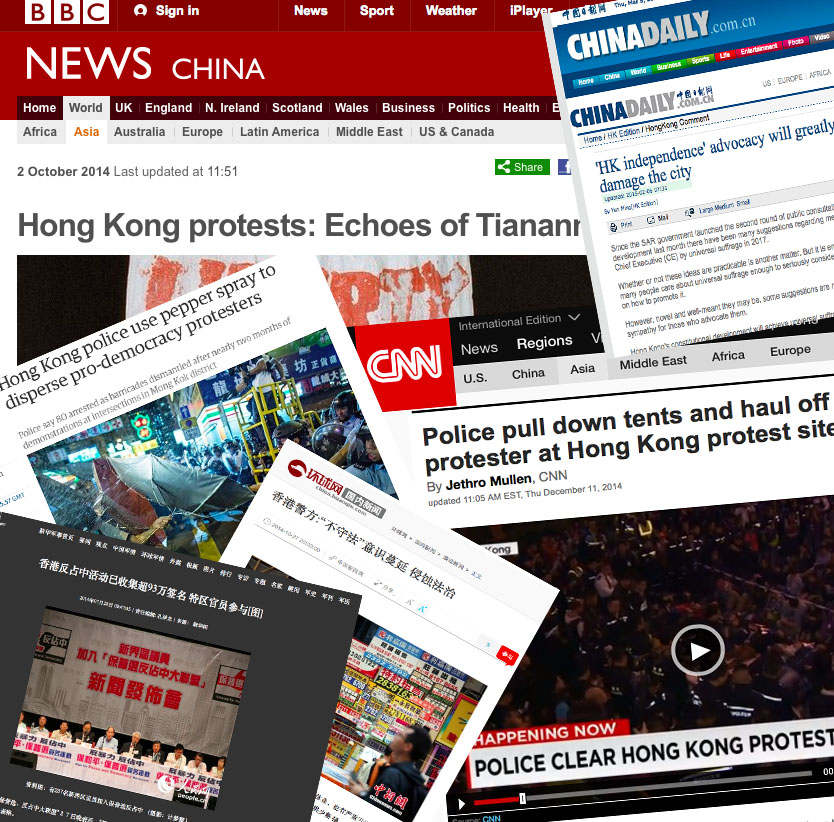In mainland China, when it comes to politically sensitive issues like sovereignty and independence, media coverage is highly restricted. Even if citizen’s contents can be posted online, they will be deleted or blocked quickly by the administrator.
The Hong Kong protests in September 2014 yielded little coverage by the mainstream media as well as bloggers. According to the New York Times, website censors rapidly deleted internet posts with words such as “Hong Kong,” “barricades”, “Occupy Central” and “umbrella”. Instagram was also blocked as a result of sharing images of protests. Chinese media coverage was more about the negative effects of protests: the illegal and unlawful protest disrupted social order and stability. The Wall Street Journal said:
“China’s state-controlled media has offered critical but relatively muted coverage of the city’s most serious display of public dissent in years.”
However, students in Hong Kong post images and videos not only on the widely-used social media like Facebook, Twitter, Instagram, Whatsapp and tumblr, attracting more and more overseas Chinese to join in, but also create their own websites like Passion Times, VJMEDIA as an information collection and dissemination headquarters. Overseas Chinese also went to the US official website We the People to sign a petition. This all contributed to the spread of information, even though mainly by Hong Kong students and overseas Chinese.
Foreign media largely focused on police conduct, especially the use of pepper spray and tear gas, regardless of authorities’ efforts in tackling the dispute. So the media coverage goes like a circle: Chinese media focuses on illegal and violent protest while foreign media concentrates on the cruelty of the government. Where is the journalism principle of objectivity and impartiality?
As a journalist, I still believe the best way is to provide enough information from different sides and let the audience decide what is right and wrong. When I study journalism in the UK, I strongly feel that the only impression westerners have of Chinese media is that it is state-controlled, in other words, subjectivity, partiality and reflecting government’s side. In recent years, China Central Television, Xinhua News Agency, China Daily, these state-owned media have spent huge amounts of money building offices overseas aimed at attracting foreign audiences, but sadly, at least the foreigners that I know do not contribute to their audience ratings.
I am proud of my country but my country is not confident in itself. As a growing economic and political power in the world, Chinese government should have confidence in tackling its domestic affairs well. Unless the authorities are tolerant enough to allow for a certain level of free information flow, this circle will continue to appear. However, for a party with the mission to stabilize the society and reject any “harmful” information from outside, this is arduous work in the years ahead.








